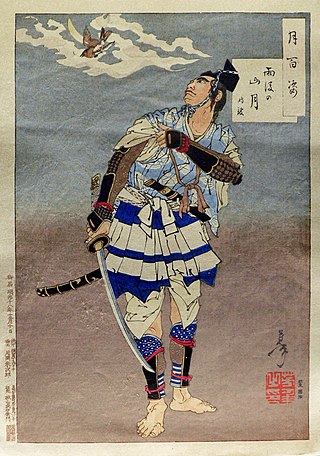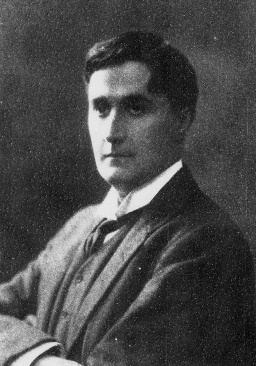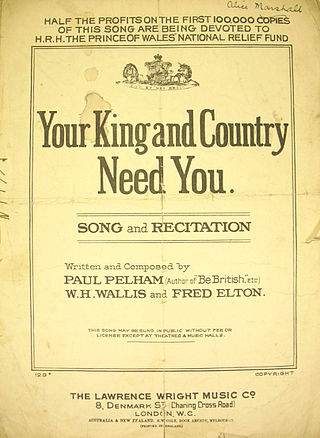
Discipline refers to rule following behavior, to regulation, order, control and authority. It may also refer to punishment. Discipline is used to create habits, routines, and automatic mechanisms such as blind obedience. It may be inflicted on others or on oneself. Self discipline refers to the practice of self restraint, controlling one's emotions, and ignoring impulses.

Lord Dunmore's War—or Dunmore's War—was a 1774 conflict between the Colony of Virginia and the Shawnee and Mingo American Indian nations.

Uncle Meat is the fifth studio album by the Mothers of Invention, released as a double album in 1969. Uncle Meat was originally developed as a part of No Commercial Potential, a project which spawned three other albums sharing a conceptual connection: We're Only in It for the Money, Lumpy Gravy and Cruising with Ruben & the Jets.

The Treaty of Chicago may refer to either of two treaties made and signed in the settlement that became Chicago, Illinois between the United States and the Odaawaa, Ojibwe, and Bodéwadmi Native American peoples. The first was in 1821 and the second in 1833.

"The Bonnie Blue Flag", also known as "We Are a Band of Brothers", is an 1861 marching song associated with the Confederate States of America. The words were written by the entertainer Harry McCarthy, with the melody taken from the song "The Irish Jaunting Car". The song's title refers to the unofficial first flag of the Confederacy, the Bonnie Blue Flag. The left flag on the sheet-music is the Bonnie Blue Flag.

"Marching Through Georgia" is a marching song written by Henry Clay Work at the end of the American Civil War in 1865. The title and lyrics of the song refer to U.S. Army major general William T. Sherman's "March to the Sea" to capture the Confederate city of Savannah, Georgia in late 1864.

Prayer is used in Scouting worldwide, following the belief of its founder, Robert Baden-Powell, that "a scout is reverent." When creating the Scouting concept, Baden-Powell was adamant that there was a place for God within it. In Scouting for Boys, Baden-Powell wrote:
We aim for the practice of Christianity in their everyday life and dealings, and not merely the profession of theology on Sundays…

La poupée is an opéra comique in a prelude and three acts composed by Edmond Audran with a libretto by Maurice Ordonneau. The libretto was based on E.T.A. Hoffmann's Der Sandmann, about a friar who falsely promises to marry his rich uncle's daughter to fool his uncle into giving money to the monastery; the scheme involves creating a doll that looks like the daughter. The uncle's daughter, however, turns the scheme on its head and fools the friar into marrying her by substituting herself for the doll.

Las Gorras Blancas was a group active in the New Mexico Territory and American Southwest in the late 1880s and early 1890s, in response to Anglo-American squatters. Founded in April 1889 by brothers Juan Jose, Pablo, and Nicanor Herrera, with support from vecinos in the New Mexico Territory communities of El Burro, El Salitre, Ojitos Frios, and San Geronimo, in present day San Miguel County.

A Trick to Catch the Old One is a Jacobean comedy written by Thomas Middleton, first published in 1608. The play is a satire in the subgenre of city comedy.

The Five Mystical Songs are a musical composition by English composer Ralph Vaughan Williams (1872–1958), written between 1906 and 1911. The work sets four poems by seventeenth-century Welsh poet and Anglican priest George Herbert (1593–1633), from his 1633 collection The Temple: Sacred Poems. While Herbert was a priest, Vaughan Williams himself was an atheist at the time, though this did not prevent his setting of verse of an overtly religious inspiration. The work received its first performance on 14 September 1911, at the Three Choirs Festival in Worcester, with Vaughan Williams conducting.

The Whimple Wassail is an orchard-visiting wassail ceremony which takes place in the Devon village of Whimple annually every Old Twelfth Night. The Whimple Wassail was first mentioned by the Victorian author and folklorist Reverend Sabine Baring-Gould in his book Devon Characters and Strange Events.

Chitto Harjo was a leader and orator among the traditionalists in the Muscogee Creek Nation in Indian Territory at the turn of the 20th century. He resisted changes which the US government and local leaders wanted to impose to achieve statehood for what became Oklahoma. These included extinguishing tribal governments and civic institutions and breaking up communal lands into allotments to individual households, with United States sales of the "surplus" to European-American and other settlers. He was the leader of the Crazy Snake Rebellion on March 25, 1909 in Oklahoma. At the time this was called the last "Indian uprising".

Doncaster, officially designated as Doncaster 17 by Indian and Northern Affairs Canada, is a Mohawk Native Reserve in the Laurentides region of Quebec, Canada. It belongs to the Mohawk First Nation, specifically the people of the reserves at Kanesatake and Kahnewake.

The Life You Can Save: Acting Now to End World Poverty is a 2009 book by Australian philosopher Peter Singer, in which the author argues that citizens of affluent nations are behaving immorally if they do not act to end the poverty they know to exist in developing nations.
Thomas Jefferson believed Native American peoples to be a noble race who were "in body and mind equal to the whiteman" and were endowed with an innate moral sense and a marked capacity for reason. Nevertheless, he believed that Native Americans were culturally and technologically inferior. Like many contemporaries, he believed that Indian lands should be taken over by white people.

Low Dog (c. 1846–1894) was an Oglala Lakota chief who fought with Sitting Bull at the Little Bighorn.

Several different recruiting songs with the name "Your King and Country Want/Need You" were popularised in Britain at the beginning of the First World War. Your King and Country Need You was a popular song and recitation, with words by Paul Pelham, and music by W. H. Wallis and Fred Elton, published in London at the start of the war in 1914 by Lawrence Wright Music. It was written as a recruiting song with the aim of persuading men to volunteer to fight in the War. Half the profits on the first 100,000 copies were to be given to the "H.R.H. Prince of Wales' National Relief Fund".

The Obstacle Is the Way: The Timeless Art of Turning Trials into Triumph is the third book by author Ryan Holiday. It was published in 2014. It is a book which offers individuals a framework to flip obstacles into opportunities, an approach crafted by Holiday. It was inspired by the philosophy of stoicism.